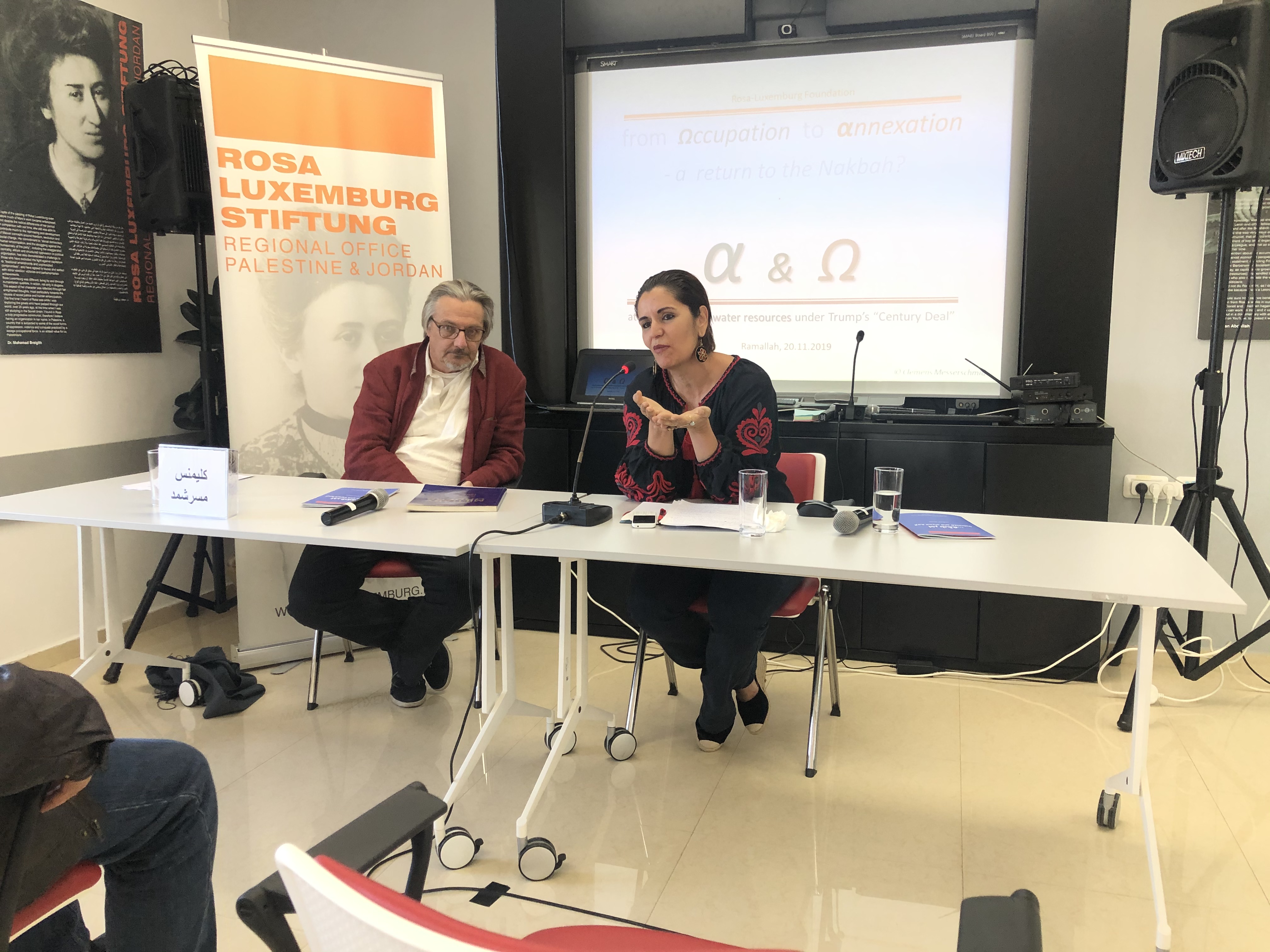On Wednesday 20/11/2019, the Rosa Luxemburg Stiftung held a seminar entitled “The Deal of the Century: A Second Nakba” at the Foundation’s headquarters in Ramallah. During the seminar, Clemens Messerschmid, a German water expert, who made research in Palestine over the past 20 years on the water sector, spoke about recent political developments related to the deal of the century, and shed the light of the water file in particular, as a practical example of the deal.
The seminar started with a presentation about information leaked on the deal of the century, which has not yet been published, pending the full agreement between the US and Israeli administrations .However, according to Messerschmid, the deal is being implemented on a daily basis through direct and on the ground arbitrary Israeli measures. He stressed the political importance of statements made by US President Donald Trump on Jerusalem and the Golan, and those recently quoted on legalizing settlements, in defiance of international law. He also stressed the importance of the announcement made by the Israeli Prime Minister Benjamin Netanyahu on his readiness to start working on the annexation of the Jordan Valley area, the annexation project of various areas of the West Bank and consequences this may have on the lives of Palestinians.
In this context, Messrshammed focused specifically on the water file as a model for the practical application of the deal of the century, and what may actually happen on the ground. One of the important issues he raised was that Israel did not occupy water at the strategic level. He said that “underground water and Jordan River were not occupied by Israel but were directly put under the Israeli administration, which made this a fait accompli throughout the history of the Arab-Israeli conflict, turning right holders into customers.
In his intervention, Messrshammed also discussed in details and with figures and maps water agreements and their impact on the settlement project, Jerusalem with its Palestinian population and the specificity of the Gaza Strip with the siege imposed on it and the successive wars that destroyed its infrastructure and deprived it of clean water.
He concluded his lecture with a number of practical suggestions to overcome the current water crisis and the best way to present it as human and national rights issue, at the local and international levels. The lecture was followed by detailed discussion with attendees. .
Commenting on the seminar, Salam Hamdan, Rosa Luxemburg Stiftung program director, said that “it falls within the Foundation’s quest to provide space for political and social dialogue.” She added that “given the importance of economic and political consequences of the deal of the century, we were of the opinion of providing more analysis and information to help people understand the reality of what is going on and explore opportunities and potentials to overcome it. We believe that the issue of water is of great importance, as it is one of the major files of the Arab-Israeli conflict and it is used by Israel as an effective political pressure tool.”
This seminar is part of the work of the Rosa Luxemburg Stiftung, which is a German organization operating in Palestine since 2008 to provide political education, and considers itself committed to a radical perspective of enlightenment and social criticism. It sponsors networks of emancipatory political, social and cultural initiatives through a range of programs, including emancipatory education, economic and social rights, political analysis and networking.









